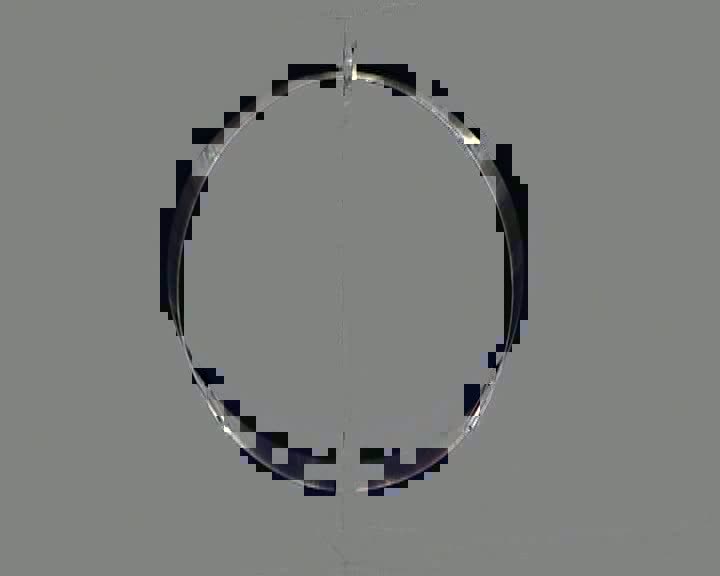„Állóhullámok körgyűrűn” változatai közötti eltérés
| 10. sor: | 10. sor: | ||
== English text == | == English text == | ||
| − | For the experiments a varying frequency signal generator, a mechanical vibrator and an annulus made of spring steel is needed. As it can be seen at some frequencies the amplitude of the vibration is enormously increased and standing waves are formed. We can study the nodes and antinodes as a frequency is increased. We can find a frequency, at which in the direction of vibration – in our case in vertical direction – the amplitude of vibration will be extraordinarily large. The frequencies, at which 2, 3, 4 and 5 nodes will be formed should be noted. | + | For the experiments a varying frequency signal generator, a mechanical vibrator and an annulus made of spring steel is needed. As it can be seen at some frequencies the amplitude of the vibration is enormously increased and standing waves are formed. We can study the nodes and antinodes as a frequency is increased. We can find a frequency, at which in the direction of vibration – in our case in vertical direction – the amplitude of vibration will be extraordinarily large. The frequencies, at which 2, 3, 4 and 5 nodes will be formed, should be noted. |
</wikitex> | </wikitex> | ||
A lap 2013. április 5., 11:50-kori változata
Az elhangzó szöveg
A kísérletekhez szükség lesz szabályozható frekvenciájú jelgenerátorra, egy mechanikai rezgéskeltőre, és egy rugóacélból készített körgyűrűre. Láthatóan egyes frekvenciáknál a rezgés amplitúdója rendkívüli mértékben megnő. Állóhullám alakul ki ilyenkor. Tanulmányozhatjuk a csomópontokat és a duzzadóhelyeket, miközben a frekvenciát növeljük. Találhatunk olyan frekvenciát, amelynél a rezgéskeltés – esetünkben függőleges – irányában a rezgés amplitúdója különösen nagy lesz. Érdemes megjegyezni azokat a frekvenciákat, amelyeknél 2, 3, 4 majd 5 csomópont alakul ki.
English text
For the experiments a varying frequency signal generator, a mechanical vibrator and an annulus made of spring steel is needed. As it can be seen at some frequencies the amplitude of the vibration is enormously increased and standing waves are formed. We can study the nodes and antinodes as a frequency is increased. We can find a frequency, at which in the direction of vibration – in our case in vertical direction – the amplitude of vibration will be extraordinarily large. The frequencies, at which 2, 3, 4 and 5 nodes will be formed, should be noted.
